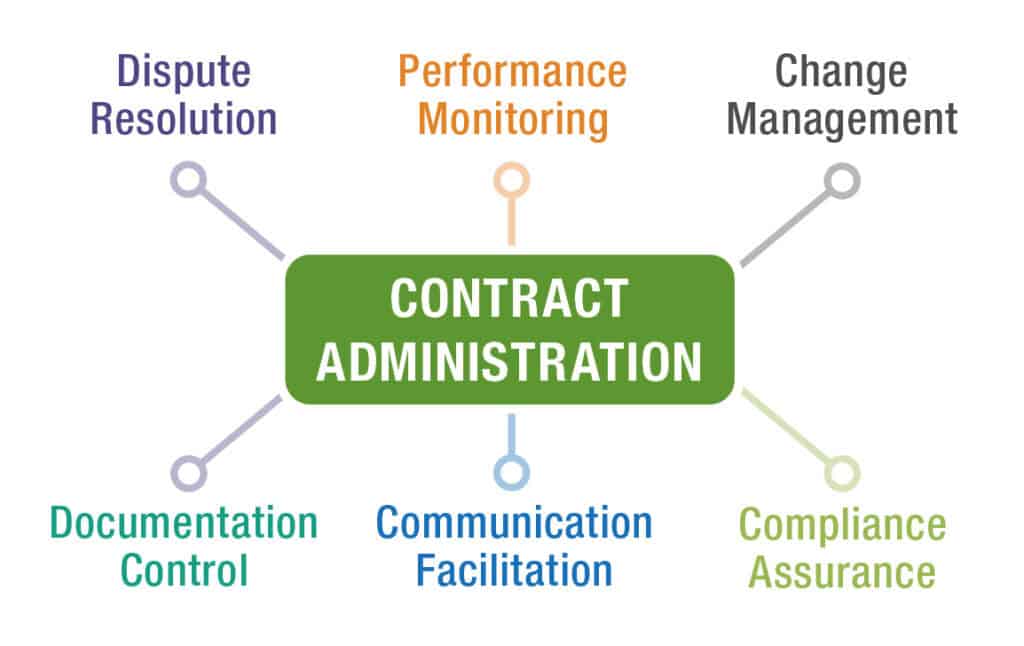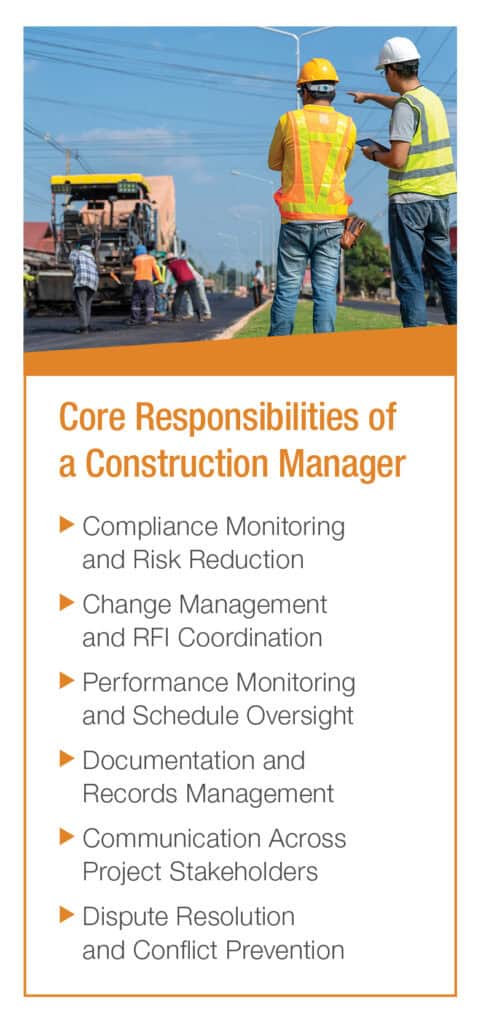In the complex world of civil engineering and construction, where projects involve myriad stakeholders, strict regulations, and significant financial investment, one role stands out as essential for project success: contract administration.
From the initial drafting of documents to final closeout, contract managers guide projects to align with the contract terms, specifications, timelines, and budgets. Their work not only supports efficient project delivery but also protects the interests of all parties involved—from project conception to completion.
What is Contract Administration in Construction?

Contract administration refers to the oversight and management of all contractual agreements within a construction project. The role encompasses performance monitoring, change management, compliance assurance, communication facilitation, documentation control, and dispute resolution. In essence, it is the operational arm of contract management—actively applied on job sites, in project offices, and across communication lines to keep construction progressing as planned.
At HR Green, contract administration is not just a task, it’s a philosophy grounded in active involvement, technical oversight, and relationship-building. Our field teams serve as the eyes and ears of the client, overseeing construction with a disciplined yet collaborative mindset.
Core Responsibilities of a Construction Manager
1. Compliance Monitoring and Risk Reduction
One of the primary roles of a construction manager is to align all construction work with the terms of the contract. This includes verifying:
- The use of correct materials
- Adherence to timelines and milestones
- Delivery of work that meets quality standards
- Conformance with safety, environmental, and regulatory requirements
This is where the construction manager’s knowledge of the contract becomes a practical tool—they act as a project’s watchdog, making sure no corner is cut, no contract clause is overlooked, and no project milestones are missed without cause.

2. Change Management and RFI Coordination
Changes in scope, unforeseen site conditions, and design modifications are common in construction. Construction mangaers manage these changes through:
- Processing and documenting change orders
- Reviewing RFIs (Requests for Information)
- Coordinating approvals for scope or schedule changes
- Assessing cost impacts and revising budgets accordingly
An example might include encountering unexpected soil conditions. In such a case, the construction manager evaluates the impact, collaborates with the design engineer, recommends a solution, and processes the necessary contract changes, all while minimizing impacts to the schedule.
3. Performance Monitoring and Schedule Oversight
Contraction managers are deeply involved in tracking how well the project performs against its schedule and budget. They:
- Conduct regular site visits
- Measure completed work against pay items
- Track progress against milestones
- Identify schedule impacts or risks before they escalate
For instance, if submittals are delayed or subcontractors fall behind, the construction manager flags these issues early, collaborates with the project stakeholders to develop solutions, and keeps the project on track.
4. Documentation and Records Management
A successful project is well-documented. Construction managers oversee and organize all relevant documentation, including:
- Contract specifications and addenda
- Change orders and RFIs
- Submittals and Shop drawings
- Daily inspection reports
- Correspondence with stakeholders
- Material test results, such as concrete strength tests
- Payment applications and lien waivers
This archive becomes crucial if disputes arise or claims are filed. Well-maintained records protect the interests of all parties involved.
5. Communication Across Project Stakeholders
Construction managers serve as communication hubs, ensuring that the right information flows between stakeholders. Weekly project updates, stakeholder meetings, and on-site discussions are all part of their routine. This ongoing dialogue supports transparency and proactively anticipates issues before they impact the project.
6. Dispute Resolution and Conflict Prevention
Disagreements are common in construction, but when handled early and informally, they rarely escalate. Construction managers help resolve issues by:
- Clarifying misunderstandings before they turn into formal claims
- Coordinating resolution meetings
- Providing clear documentation to support decisions
By addressing disputes at their source, construction managers save both time and money and help preserve working relationships among the project stakeholders.
Why Construction Managers Are Essential in Civil Engineering Projects
Construction managers are indispensable to the successful delivery of construction projects. Their oversight helps civil engineering projects stay on track—built safely, efficiently, and to the highest standards of quality and integrity. As infrastructure demands grow and construction complexity increases, so does the need for diligent, engaged, and responsive construction managers.
Whether you’re launching a new infrastructure initiative or navigating the complexities of an ongoing project, don’t overlook the pivotal role of construction managers and inspectors. Connect with us to learn how our team can support your goals.




